






















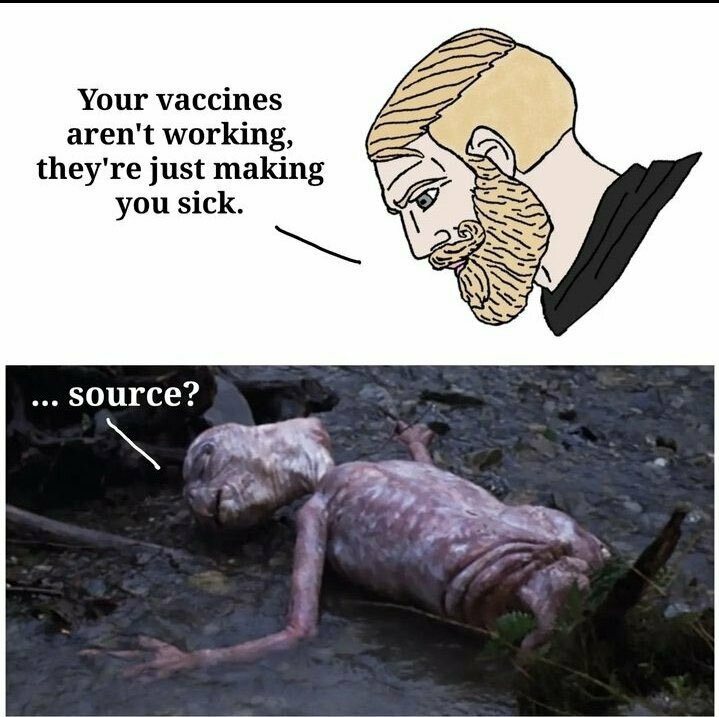











































































































As you examine the evidence, keep in mind the following axiom: Pope Benedict, in his act of resignation, needed to fully assent with his will to the total renunciation of the papacy in toto in order for it to be valid. If you find evidence, spoken, written, and visual evidence, that he did NOT intend to fully resign, that, on the contrary, he quite obviously intended to remain in some way papal, well then you have your answer. SUBSTANTIAL ERROR. -nvp

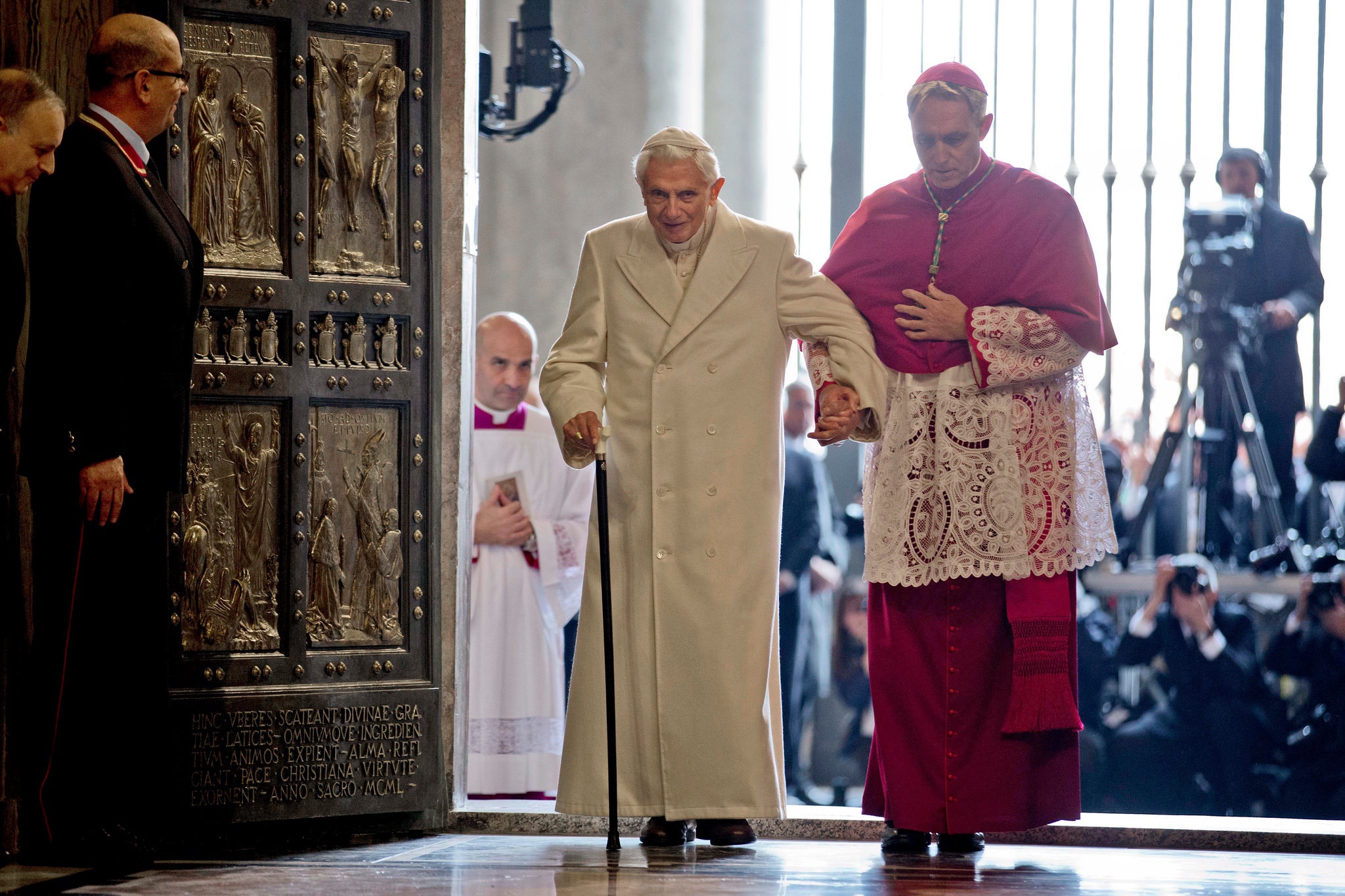
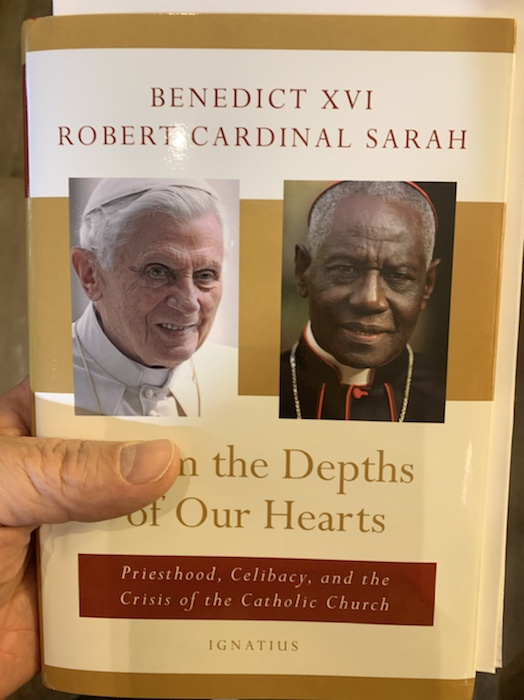
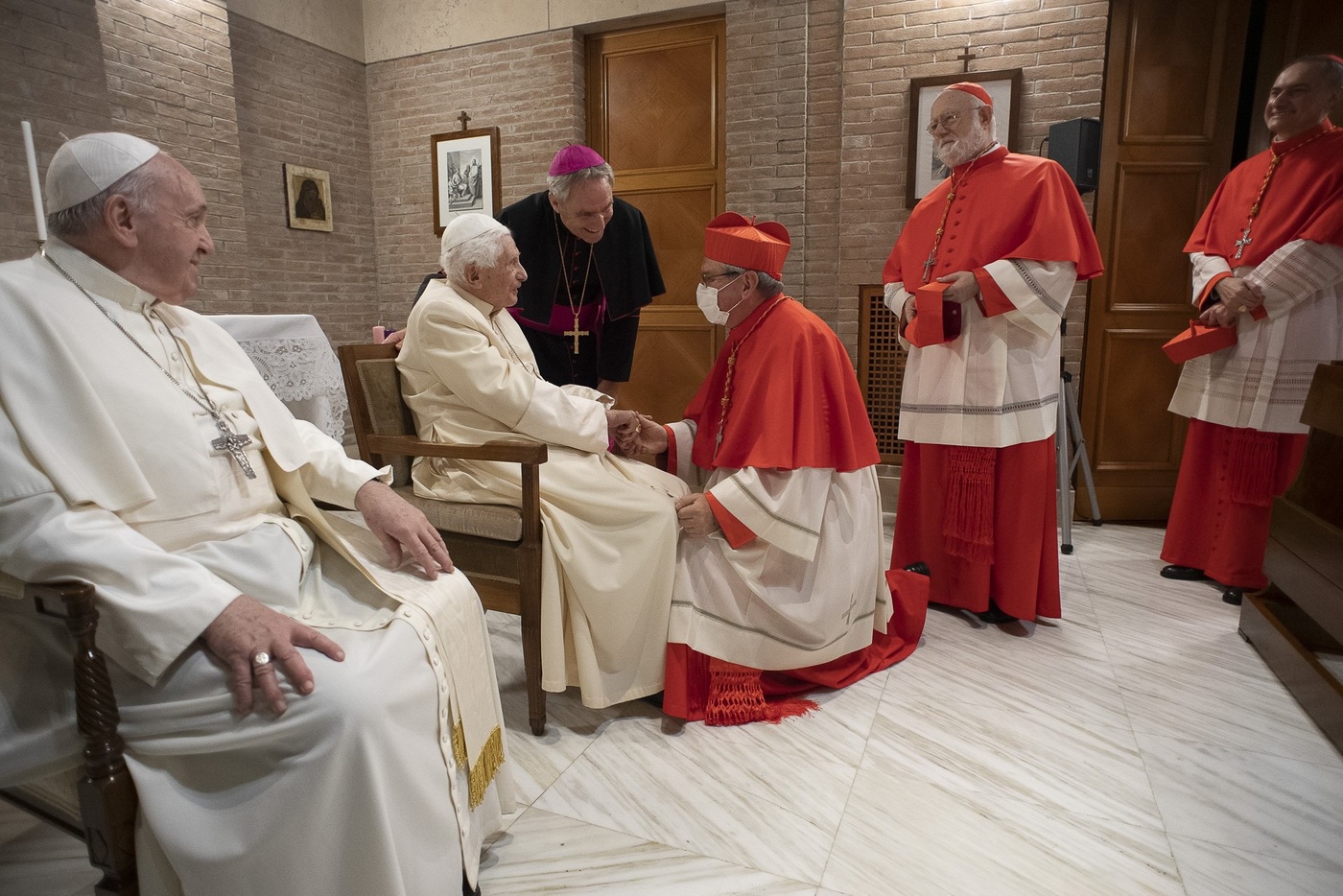


Yes, it is the Vigil of the Feast of Saints Simon and Jude once again, this year marking my 47th year. People in my gene pool have had the habit of dying at age 94, so I consider this my “mid-way point” of expected natural longevity. So, no more messing around. I better get with it!
And since I’m a math nerd, and 47 is a prime number, AND I’m of the considered opinion that Val Kilmer’s performance as Doc Holliday in Tombstone is one of the greatest things ever put on film, if you ask me if I FEEL middle-aged, I shall for the next year respond with the perfectly honest double entendres Hollidayism, “Not me, I’m in my prime.”
And, as is now a TWENTY year birthday tradition here on the Barnhardt.biz blog, please enjoy Alison Krauss and the Cox Family singing “Will There Be Any Stars In My Crown.”
Thanks to one and all for your kind greetings and good prayers, and to Our Loving and Merciful Lord for another incredibly wonderful year. I can’t wait to see what’s in store for orbital lap #48!

On February 11, 2013, two tremendous bolts of lightening struck the Dome of St. Peter’s Basilica, directly above the Tomb of the Apostle–the same day Pope Benedict announced his stunning Declaratio! Stranger still, in the Vatican, for the next decade, two men wore the signature white cassock, two men bestowed their own personal Apostolic Blessings on the faithful and two men were formally addressed as “His Holiness.” One resided in seclusion and self-imposed silence, in prayer and meditation at the Mater Ecclesiae Monastery in the Vatican Gardens. The other still resides in the Domus Sanctae Marthae, the Vatican hotel, which was built to house visiting cardinals. (Curiously, the Papal Apartments located in the Apostolic Palace since the 17th Century remain uninhabited.) The unexpected renunciation of Benedict and his perplexing presence in the Vatican as “Pope Emeritus” still confounds Catholics as much as–in some sense, even more than–the globalism and heterodoxy of the putative pope, Francis.
Now that the new “Synodal” Church is being foisted upon us, it’s time to seek the truth about the “two Popes.” It’s time for the silent majority to speak out. As conference speaker, His Excellency Archbishop Carlo Maria Vigano has prophetically intoned:
Among the titles of the Roman Pontiff recurs, along with
Christi Vicarius, that of Servus servorum Dei [“Servant of the
servants of God”]. While the former has been disdainfully
rejected by Bergoglio, his choice to retain the latter sounds
like a provocation, as evidenced by his words and deeds.
The day will come when the Presuli of the Church will be
asked to clarify what intrigues and what conspiracies could
have led to the Throne him who acts as “Servant of Satan’s
servants,” and why they have fearfully witnessed his
intemperances or made themselves accomplices of this
proud heretical tyrant. Let those who know and who keep
silent out of false prudence tremble: by their silence they do
not protect the honor of the Holy Church, nor do they
preserve the simple ones from scandal. On the contrary,
they plunge the Bride of the Lamb into ignominy and
humiliation, and turn the faithful away from the Ark of
salvation at the very moment of the Flood.
Various speakers at “Is the Pope Catholic?” Conference will consider the possibility of 1) the invalidity of Pope Benedict’s resignation, or 2) the invalidity of Bergoglio’s acceptance of the Papacy, or 3) Bergoglio’s loss of office due to public material (if not formal) heresy.
Code of Canon Law of the Catholic Church, Canon 748 §1. “All persons are bound to seek the truth in those things which regard God and his Church…are bound by the obligation…of embracing and observing the truth which they have come to know.”
Fr. Franz Wernz and Fr. Pedro Vidal’s Ius Canonicum, an eight-volume work published in 1943, which is perhaps the most highly respected commentary on the 1917 Code of Canon Law, states:
“Finally they cannot be numbered among the schismatics, who refuse to obey the Roman Pontiff because they consider his person to be suspect or doubtfully elected on account of rumors in circulation.”
Friends, you KNOW he’s going to be bombarded with all kinds of gaslighting and “peer pressure” tactics, maybe even threats. Please reach out and let him know that he isn’t alone – in fact, he’s in the plurality amongst the faithful Remnant.
And might I recommend BOTH Barnhardt Podcast Episodes 197 and Episode 198, both of which are “NonVeni MazzaCasts” discussing the Bergoglian Antipapacy, and are a fantastic addition to the Part 3 Video that just dropped on Monday.
Monday was QUITE the red-letter day for me. The Part 3 video dropped AND my showers were finally installed at the new Van down by the Proverbial Creek. No more camp showers after nearly FIVE months. I feel like a bajillionaire. My cup verily doth runneth over!
I’ve rediscovered Ann Barnhardt
I’m amazed at her and her colleagues erudition, honesty and common sense
I listened to her podcast at 1.5, Ann says playback at 2 is the speed of her inner monologue. So made me laugh
Barnhardt Podcast #197: Mos Eisley Scum Synod — it’s a…
— Nick Donnelly (@ProtecttheFaith) October 25, 2023
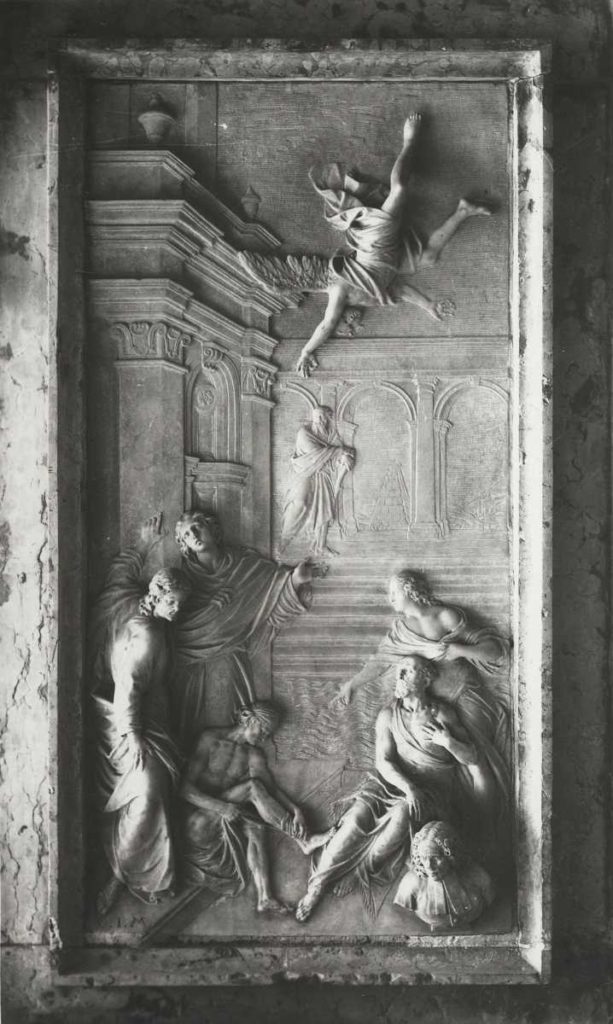
The Probatic Pool, marble relief, Giovanni Marchiori, early 1700s, Church of Saints Simon and Jude, Venice
Today is the feast of the Archangel Raphael, who is known as the “angelical physician”, not only for his healing works in the Book of Tobias, but also for his deeds as recounted in John chapter 5, one of the most moving narratives in scripture. It was St. Raphael the Archangel who would agitate the waters once per year at Bethesda which would then heal the first person to touch the waters. In John 5, even though St. John is spare in his prose, one can immediately hear the anguish of the man who tells Our Lord that he has tried every year for thirty-eight years to be healed of his infirmity, but because he has no one to help him, he never makes it to the pool in time. And yet, this man has kept the faith and persevered.
Our Blessed Lord healed the man, and afterward, finding the man at the Temple, Jesus told him, “Behold thou art made whole: sin no more, lest some worse thing happen to thee.”
Mercy is inextricably tied to renunciation of sin. The “worse thing” that would come from presuming upon God’s Mercy and NOT ceasing the sinful activity (or at least having a firm, immediate purpose of amendment) is ETERNAL DAMNATION. Thirty-eight years with a horrific physical infirmity is NOTHING compared to all of eternity in hell in unceasing torment, never, ever to see God, and knowing how being damned was 100% one’s own choice, and thus completely unnecessary.
None of us have to wait for St. Raphael to swoop in (wheeeee!) as depicted above, and then win a foot race. All we have to do is enter The Church and go to Confession, wherein the waters of Baptism are perpetually and inexhaustibly available, and the Blood of Christ removes every stain of sin.
St. Raphael, pray for us.
Christ, have mercy on us.
Two hours and forty minutes and I feel like I left so much out that I reserve the right to drop a Part 3.5 video.
Remember to pray the Matthew 17:20 Intention:
1. That Bergoglio be publicly recognized and removed as Antipope and the whole Antipapacy be publicly declared null
2. That Pope Benedict Ratzinger be publicly recognized as the one and only living Pope from April of ARSH 2005 until his death on December 31, ARSH 2022, and for the Petrine See in se
3. That Antipope Bergoglio repent, revert to Catholicism, do penance and die in the state of grace in the fullness of time, and someday achieve the Beatific Vision
4. For the repose of the soul of Pope Benedict Ratzinger
St. Catherine of Siena, pray for us, for the Holy Catholic Church outside of which there is no salvation, and for the Petrine See, vacant these 296 days and counting.
Lord Jesus Christ, have mercy on us.
The Odysee-based video is embedded on this page but sharing a link to that on social media doesn’t work very well as Odysee has been shadow-banned in some places and might get banned altogether in others (like the E.U.), so Supernerd has posted the video to some other platforms as well, platforms where sharing is much easier and that aren’t as shadow-banned (but, admittedly, could get censored):
Licensing: this video is licensed under the Creative Commons CC BY-NC-ND license which, in a nutshell, means you need to attribute authorship (linking back to this web page is best), not sell it or post it to monetized channels, and don’t make any derivative works from it (like an edit which is in substantial error with the actual thesis of this video). Supernerd is going to post the final 4.17 GB video and link it here for those who want to share and post it elsewhere; let us know and we’ll add links to additional locations where the video has been shared:
But before we get to the love-in for demons and serpents, let’s clock the wholesale denial of the Four Marks of the Church, as NonVeniMark pointed out, by some Antichurch flying monkeyfaggots.

The Four Marks of the Church are:
One. Holy. Catholic. Apostolic.
Catholic means “universal”. One Church for EVERYONE.
Apostolic means passed down, unchanging, in uninterrupted succession through the Sacrament of Holy Orders.
Count them as they are denied, openly:
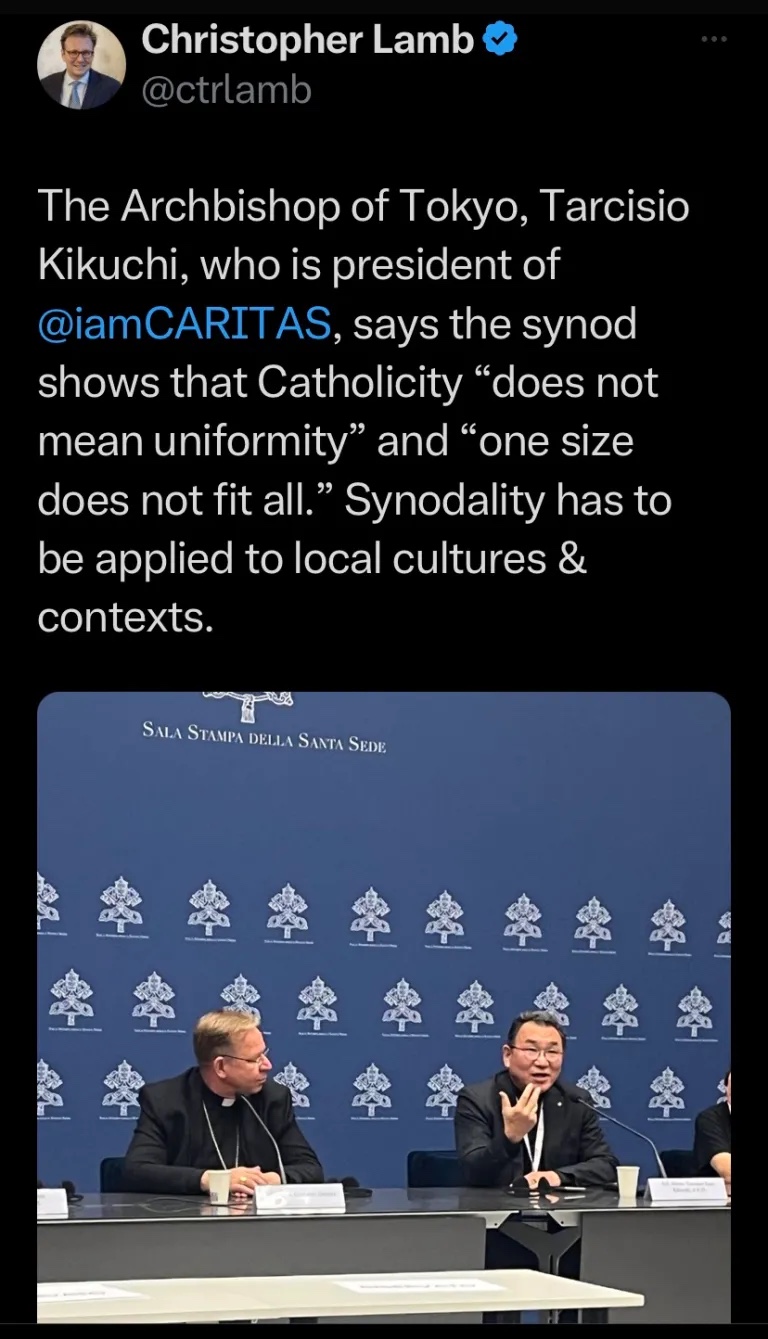
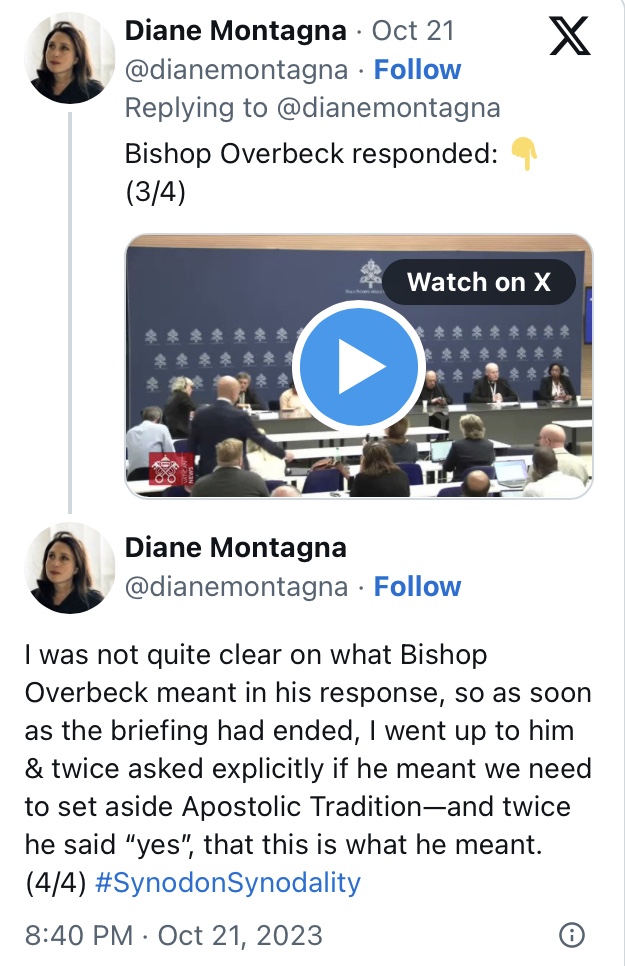
https://x.com/dianemontagna/status/1715800335233552419?s=46&t=QVRahZjR0Wj-QYIIJUNMOA
The big question now for the remaining handful of Catholic prelates is: WHY HAVE YOU NOT EXCOMMUNICATED and/or ANATHEMATIZED ANY OF THESE DEMONIC WRETCHES?
Scared?
Of course you are. You’re scared absolutely shitless of Bergoglio and his faggots, and everyone – on both sides – knows it.
But wait, there’s more.
Here is NovusOrdoWatch’s excellent and thorough take-down of the “pray for demons and reptiles” bilge. N.O.W. is 1958 sedevacantist, and militantly so, but it cannot be denied that their research strictly apart from that question is outstanding, and most of us use the N.O.W. website as a kind of reference tome on Church documents and issues exactly such as this.
Here’s my original post on the Antichurch Sin-Nod document, and here is the N.O.W. explanation of the heretical source of the Nestorian, universal salvation (even for the DEMONS, and therefore also for the faggots, dykes, trannies and pedos) crap. Read up.
ENOUGH.
https://novusordowatch.org/2023/10/synod-spirituality-on-fire-for-demons-and-reptiles/
Who was ‘Saint Isaac the Syrian, of Nineveh’?
It does not take long to find out that Isaac was a bishop and a hermit who lived in the seventh century but was not a Catholic. In fact, he was a Nestorian heretic, although there is some reason to believe he may have converted to Catholicism toward the end of his life. However, not having any concrete evidence of that, we will presume he died in the religion he professed for most of his life.
…
It is difficult to count all the heresies in Isaac’s thought as laid out above, but at least now we understand better why he wrote what he wrote, and why the synodalists like him so much. In fact, the above is reminiscent of ‘Pope’ Francis’ endless blather about mercy and forgiveness while at the same time consistently refusing to talk about God’s justice or the conditions necessary for obtaining forgiveness in the first place. Isaac’s vision also reminds one of the crazy “omega point” pseudo-theology of the Jesuit evolutionist Pierre Teilhard de Chardin (1881-1955), who was just recently endorsed by [Antipope] Bergoglio.
Wow. IF ONLY THERE HAD BEEN SIGNS! IF ONLY WE HAD KNOOOOWN THAT SOMETHING WAS WROOOONG!
Enough. Enough of this.



















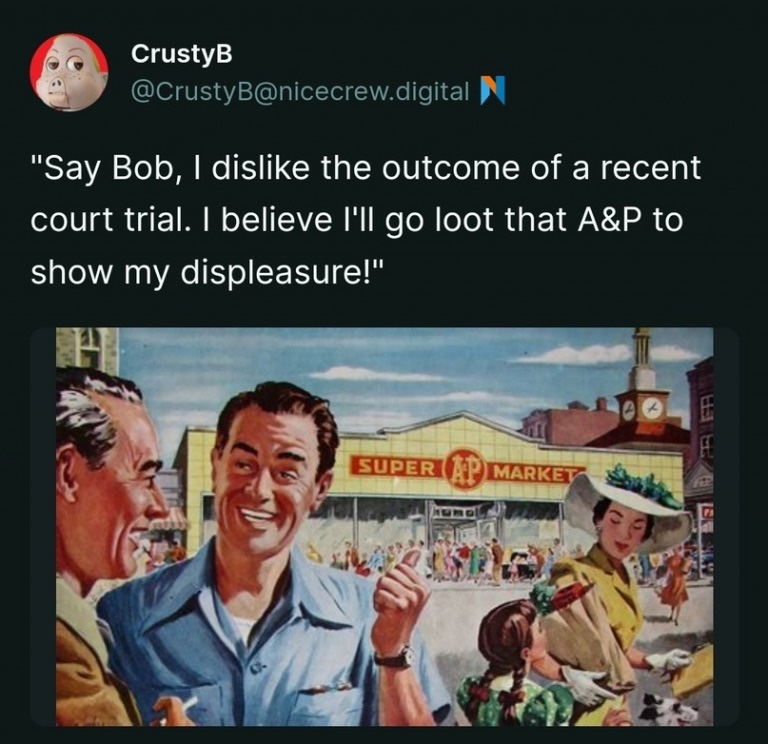








































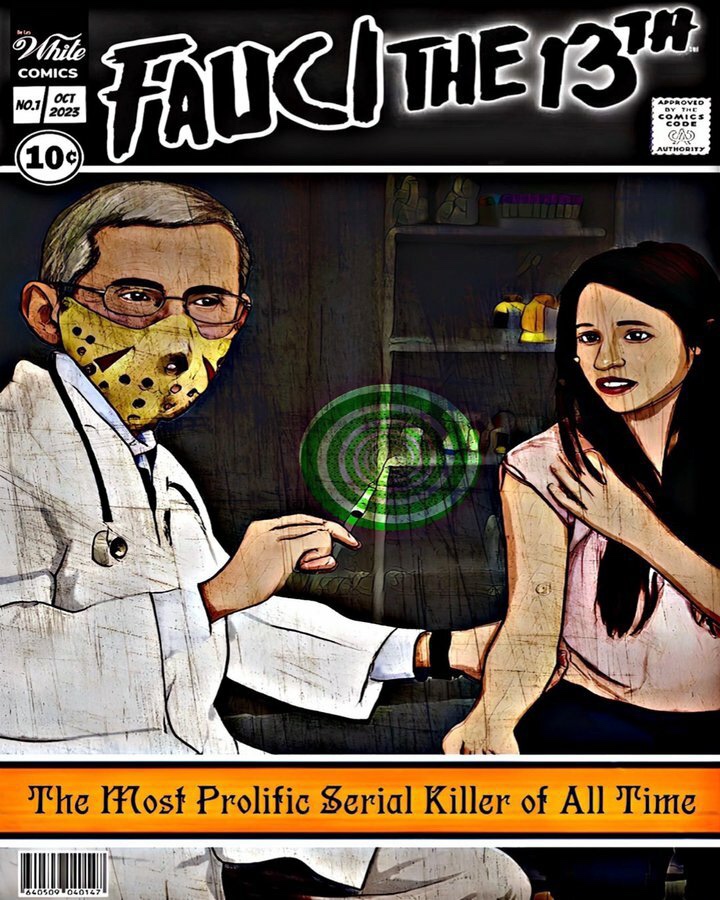















“The most ominous of modern perversions is the shame of appearing naïve if we do not flirt with evil.”

St. Alphonsus Liguori on the danger of keeping bad company. One of his best sermons, and that is truly saying something.
There met him ten men that were lepers… As they went, they were made clean.” LUKE xvii. 12, 14.
IN this day’s gospel it is related, that ten lepers of a certain town met Jesus Christ, and entreated him to heal the leprosy under which they laboured. The Lord bid them go and present themselves to the priests of the temple; but before they reached the temple they were cured. Now it may be asked why our Saviour, who could heal them in an instant, wished them to go to the priests, and healed them on the way.
A certain author (Anthony of Lisbon) says that Jesus Christ foresaw that, had he cured them on the spot, they, by remaining in the place and conversing with the other lepers, from whom they took the leprosy, should easily relapse into the same disease. Therefore, he first wished them to depart from the place and then healed them. Whatever may be thought of this reason, let us come to the moral sense which may be deduced from it.
The leprosy resembles sin. As the leprosy is a contagious disease, so the bad habits of the wicked infect others who associate with them. Hence, the leper who wishes to be cured shall never be healed unless he separates from bad companions. He that keeps company with robbers soon becomes a thief. In this discourse I shall show, that, to lead a good life, it is necessary to avoid bad companions.
1. “A friend of fools,” says the Holy Ghost, “shall become like them.” (Prov. xiii. 20.) Christians who live in enmity with God are, Father M. Avila used to say, all fools, who deserve to be shut up in a mad-house. For, what greater madness can be conceived than to believe in hell and to live in sin? But the man who contracts an intimacy with these fools shall soon be come like them. Although he should hear all the sermons of the sacred orators, lie will continue in vice, according to the celebrated maxim: ”Examples make greater impressions than words.”
Hence the Royal Prophet has said: ”With the elect thou wilt be elect, and with the perverse thou wilt be perverted.” (Ps. xvii. 27.) St. Augustine says, that familiarity with sinners is as it were a hook which draws us to communicate in their vices. Let us, said the saint, avoid wicked friends, ”lest by their company we may be drawn to a communion of vice.” St. Thomas teaches, that to know whom we should avoid is a great means of saving our souls. Firma tutela salutis est, sciro quem fugiamus.”
2. “Let their way become dark and slippery, and let the angel of the Lord pursue them.” (Ps. xxxiv. 6.) All men in this life walk in the midst of darkness and in a slippery way. If, then, a bad angel that is, a wicked companion, who is worse than any devil pursue them, and endeavour to drive them into an abyss, who shall be able to escape death?”Talis eris,” says Plato, “qualis conversatio quam sequeris ?” And St. John Chrysostom said, that if we wish to know a man‟s moral habits, we have only to observe the character of the friends with whom he associates; because friendship finds or makes him like his friends. ”Vis nosse hominem, attende quorum familiaritate assuescat: amicitia aut pares invenit, aut pares fecit.”
First, because, to please his friends, a man will endeavour to imitate them; secondly, because, as Seneca says, nature inclines men to do what they see others do. And the Scripture says: * They were mingled among the heathens, and learned their works.” (Ps. cv. 35.) According to St. Basil, as air which comes from pestilential places causes infection, so, by conversation with bad companions, we almost imperceptibly contract their vices. ”Quemadmodum in pestilentibus locis sensim attractus aër latentem corporibus morbuin iujicit sic itidem in prava couversatione maxima a nobis mala hauriuntur, etiamsi statim incommodum non sentiatur.” (St. Bas., Hom, ix., ex var. quod Deus, etc.) And St. Bernard says that St. Peter, in consequence of associating with the enemies of Jesus Christ, denied his Master. ”Existens cum passionis dominicæ ministris, Doininum, negavit.”
3. But how, asks St. Ambrose, can bad companions give you the odour of chastity, when they exhale the stench of impurity? How can they infuse into you sentiments of devotion when they themselves fly from it? How can they impart to you a shame of offending God, when they cast it away?”Quid tibi demonstrant castitatem, quem non habent? Devotionem quam non sequuntur? Verecundiam quam projiciunt?”
St. Augustine writes of himself, that when he associated with bad companions, who boasted of their wickedness, he felt himself impelled to sin without shame; and to appear like them, he gloried in his evil actions. ”Pudebat,” he says, ”me esse pudentem.” (Lib. 2, de Conf., c. ix.) Hence Isaias admonishes you to”touch no unclean thing.” (Isa. lii. 11.)
Touch not what is unclean: if you do, you too shall be polluted. He that handles pitch, says Ecclesiasticus, shall certainly be denied with it; and they who keep company with the proud shall be clothed with pride. The same holds for other vices: ”He that toucheth pitch shall be denied with it; and he that hath fellowship with the proud shall put on pride.” (Eccl. xiii. 1.)
4. What then must we do? The Wise Man tells us that we ought not only to avoid the vices of the wicked, but also to beware of treading in the ways in which they walk. ”Restrain thy foot from their paths.” (Prov. i. 15.) That is, we should avoid their conversations, their discourses, their feasts, and all the allurements and presents with which they will seek to entice us into their net. ”My son,” says Solomon, “if sinners shall entice thee, consent not to them.” (Prov. i. 10.)
Without the decoy, birds are not enticed into the fowler’s net. ”Will the bird fall into the snare upon the earth if there be no fowler?” (Amos iii. 5.) The devil employs vicious friends as decoys, to draw so many souls into the snare of sin. “My enemies, ” says Jeremias, ”have chased me, and have caught me like a bird without cause.” (Lamen. iii. 52.) He says, without cause.
Ask the wicked why they have made a certain innocent young man fall into sin, and they will answer: We have done it without cause; we only wish to see him do what we ourselves do. This, says St. Ephrem, is one of the artifices of the devil: when he has caught a soul in his net, he makes him a snare, or a decoy, to deceive others. ”Cum primum capta fuerit, anima, ad alias decipiendas fit quasi laqueus.”
5. Hence, it is necessary to avoid, as you would a plague, all familiarity with those scorpions of hell. I have said that you must avoid familiarity with them that is, all fellowship in their banquets or conversation; for never to meet them is, as the Apostle says, impossible. ”Otherwise you must needs go out of this world.” (1 Cor. v. 10.) But, it is in our power to abstain from familiar intercourse with them. ”But now I have written to you not to keep company, etc. with such a one, not so much as to eat.” (Ibid. v. 11.) I have called them scorpions: so they have been called by the Prophet Ezechiel. ”Thou art among unbelievers and destroyers, and thou dwellest among scorpions.” (Ezec. ii. 6 )
Would you live in the midst of scorpions? You must, then, fly from scandalous friends, who, by their bad examples and words, poison your soul. ”A man‟s enemies shall be they of his own household.” (Matt. x. 36.) Wicked friends, that are very familiar and intimate with us, become the most pernicious enemies of our souls. ”Who,” says Ecclesiasticus, ”will pity an enchanter struck by a serpent, or any that come near wild beasts? So it is with him that keepeth company with a wicked man.” (Eccl. xii. 13.)
If the man that makes free with serpents, or with ferocious wild beasts, be bitten or devoured by them, who will take pity on him? And so it is with him who associates with scandalous companions; if, by their bad example he be contaminated and lost, neither God nor man will have compassion on him; because he was cautioned to fly from their society.
6. One scandalous companion is enough to corrupt all who treat him as a friend. ”Know you not,” says St. Paul, ”that a little leaven corrupts the whole lump ?” (1 Cor. v. 7.) One of these scandalous sinners is able, by a perverse maxim, to infect all his companions. They are the false prophets whom Jesus Christ warns us to avoid. “Beware of false prophets.” (Matt. vii. 15 )
False prophets deceive, not only by false predictions, but also by false maxims or doctrines, which are productive of the greatest mischief. For, as Seneca says, they leave in the soul certain seeds of iniquity which lead to evil. ”Semina in animo relinqueunt, quæ inducunt ad malum. ”
It is too true that scandalous language, as experience proves, corrupts the morals of those who hear it. “Evil communications,” says the Apostle, corrupt good manners. ” (1 Cor xv 63.) A young man refuses, through the fear of God, to commit a certain sin: an incarnate devil, a bad companion comes and says to him what the serpent said to Eve: “No; you shall not die the death.” (Gen. iii. 4.) What are you afraid of? How many others commit this sin? You are young; God will have pity on your youth. They will as is written in the book of Wisdom, say Come, therefore, let us enjoy the good things that are present-let us everywhere leave tokens of joy (ii 6 9) Come with us; let us spend our time in amusement and in joy. ”O nimis imqua amicitia,” says St. Augustine, cum dicitur, eamus, facimus: pudet non esse impudentum O cruel friendship of those who say let us go and do etc.: it is a shame not to be shameless. He who hears such language is ashamed not to yield to it and not be as shameless as they who utter it
7. When any passion is kindled within us, we must be particularly careful in selecting the persons whom we will consult. For, then the passion itself will incline us to seek counsel from those who will probably give the advice which is most agreeable to the passion. But from such evil counsellors, who do not speak according to God, we should fly with greater horror than from an enemy; for their evil counsel, along with the passion which is excited, may precipitate us into horrible excesses.
As soon as the passion shall subside we shall see the error committed, and the delusion into which we have been led by false friends. But the good advice of a friend, who speaks according to Christian truth and meekness preserves us from every disorder, and restores calm to the soul.
8. ”Depart from the unjust,” says the Lord, and evils shall depart from thee.” (Eccl. vii. 2.) Fly, separate from wicked companions, and you shall cease to commit sin. ”Neither let the way of evil men please thee. Flee from it: pass not by it: go aside and forsake it.” (Prov. iv. 14, 15.) Avoid the ways in which these vicious friends walk, that you may not even meet them. ”Forsake not an old friend; for the new will not be like to him.” (Eccl. ix. 14.) Do not leave your first friend, who loved you before you came into the world. ”I have loved thee with an everlasting love.” (Jer. xxxi. 3.) Your new friends do not love you; they hate you more than your greatest enemy: they seek not your welfare, as God, does, but their own pleasures, and the satisfaction of having companions of their wickedness and perdition.
You will, perhaps, say: I feel a repugnance to separate from such a friend, who has been solicitous for my welfare; to break off from him would appear to be an act of ingratitude. What welfare? What ingratitude? God alone wishes your welfare, because he desires your eternal salvation. Your friend wishes your eternal ruin; he wishes you to follow him, but cares not if you be damned. It is not ingratitude to abandon a friend who leads you to hell; but it is ingratitude to forsake God, who has created you, who has died for you on the cross, and who desires your salvation.
9. Fly then from the conversation of these wicked friends. ”Hedge in thy ears with thorns, hear not a wicked tongue.” (Eccl. xxviii. 28.) Beware of listening to the language of such friends; their words may bring you to perdition. And when you hear them speak improperly arm yourself with thorns, and reprove them, not only for the purpose of rebuking, but also of converting them. ”Ut non solum,” says St. Augustine, ”repellantur sed etiam compungantur.” Listen to a frightful example, and learn the evil which a wicked friend does.
Father Sabatino relates in his “Evangelical Light” that two friends of that kind were one day together. One of them, to please the other, committed a sin; but after they had separated he died suddenly. The other, who knew nothing of his death, saw, in his sleep, his friend, and, according to his custom, ran to embrace him. But the deceased appeared to be surrounded with, fire, and began to blaspheme the other, and to upbraid him for being the cause of his damnation. The other awoke and changed his life. But his unhappy friend was damned; and for his damnation there is not, and shall not be, any remedy for all eternity.